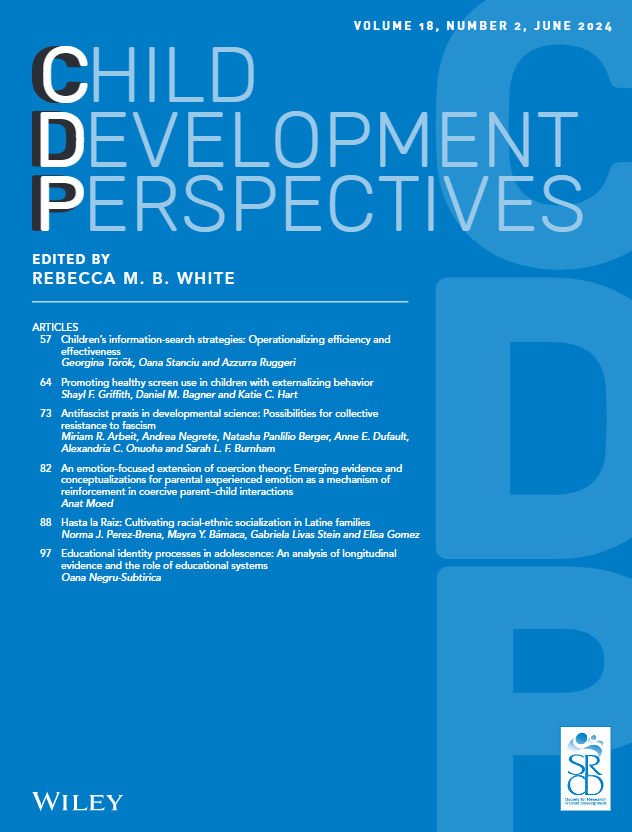从边缘到中心:亚洲看护者情感社会化研究进展
IF 5.3
1区 心理学
Q1 PSYCHOLOGY, DEVELOPMENTAL
引用次数: 0
摘要
与发展科学的其他领域一样,在占世界近60%人口的亚洲,情感社会化研究也处于边缘地带。在本文中,我将这种边缘化置于我们科学的殖民基础中,讨论全球北方情感社会化框架的历史主导地位。我还讨论了亚洲情感社会化研究的相关局限性,最近整合文化过程的概念化和从这项研究中获得的新见解,以及进一步推进这一文献的非殖民化框架的必要性。一个非殖民化的框架将使学者能够将情感社会化置于当地环境中;使用当地社区重视的研究方法;并将亚洲人与情绪相关的信念和行为视为资产,而不是赤字。采用非殖民化的框架可以将亚洲的情感社会化研究从边缘转移到情感社会化文献的中心,从而产生知识来支持亚洲和世界各地儿童的福祉。本文章由计算机程序翻译,如有差异,请以英文原文为准。
From the margins to the center: Advancing research on caregiver socialization of emotion in Asia
Abstract As in other fields of developmental science, emotion socialization research in Asia, where nearly 60% of the world's population lives, has emerged on the margins. Contextualizing this marginalization within colonial foundations of our science, in this article, I discuss the historic dominance of the Global North frameworks of emotion socialization. I also address associated limitations of emotion socialization research in Asia, recent conceptualizations that integrate cultural processes and emerging insights from this research, and the need for a decolonial framework to further advance this literature. A decolonial framework would enable scholars to contextualize emotion socialization within local milieus; use research methods valued by local communities; and interpret emotion‐related beliefs and behaviors in Asia as assets, not deficits. Adopting a decolonial framework can move emotion socialization research in Asia from the margins to the center of emotion socialization literature, generating knowledge to support the well‐being of children in Asia and around the world.
求助全文
通过发布文献求助,成功后即可免费获取论文全文。
去求助
来源期刊

Child Development Perspectives
PSYCHOLOGY, DEVELOPMENTAL-
CiteScore
11.90
自引率
1.60%
发文量
35
期刊介绍:
Child Development Perspectives" mission is to provide accessible, synthetic reports that summarize emerging trends or conclusions within various domains of developmental research, and to encourage multidisciplinary and international dialogue on a variety of topics in the developmental sciences. Articles in the journal will include reviews, commentary, and groups of papers on a targeted issue. Manuscripts presenting new empirical data are not appropriate for this journal. Articles will be obtained through two sources: author-initiated submissions and invited articles or commentary. Potential contributors who have ideas about a set of three or four papers written from very different perspectives may contact the editor with their ideas for feedback.
 求助内容:
求助内容: 应助结果提醒方式:
应助结果提醒方式:


